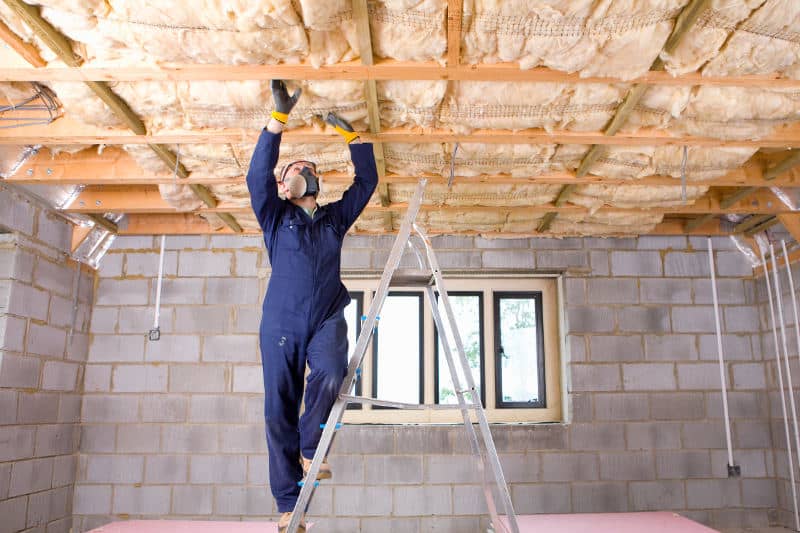Most homeowners don’t think about insulating their ceilings, but it’s actually a very important home improvement project. There are several reasons why you should insulate your ceiling, including reducing energy costs, improving comfort, and reducing noise.
One of the main reasons to insulate your ceiling is to reduce your energy costs. In the summer, insulation helps keep your home cool by blocking heat from the outside. In the winter, insulation helps keep your home warm by trapping heat inside. Installing ceiling insulation with Insulation Essentials can save you money on your energy bills year-round.
Improving comfort is another reason to insulate your ceiling. If your home is too hot in the summer or too cold in the winter, insulation can help even out the temperature. This can make your home more comfortable to live in and can help reduce wear and tear on your HVAC system.
There are three main types of ceiling insulation:
1. Car park ceiling:
High-density boards that can be painted or plastered include an optional coating or wood-fibre finish. Boards are adjusted or secured by means of a welding procedure to the ceiling. This improves the ceiling’s aesthetic appeal as well as its thermal, acoustical, and fire-resistant properties.
2. Basement or cellar ceiling:
A comparable product to garage ceiling was specially focused for domestic use and expectations.
3. Suspended ceiling:
A newly made subfloor is commonly installation over the ceiling in the intermediate floors. Lightweight rolls and slabs are often used to improve the thermal, acoustic, and fire performance achievable over the past three years.
Benefits of ceiling insulation:
- Cool retention – stopping cool air passing through a floor.
- Acoustic absorption – reducing long reverberation time.
- Fire-resistant properties – reducing the risk of a fire spreading.
- Reduced energy costs which can help alleviate financial issues related to hot homes.
Installation
There are a number of ways to install soundproofing ceiling panels. Suspended acoustic panels, rolls and slabs may be slotted between the tops of the rafters of a suspended ceiling. They may be placed on the underside of the ceiling, or you can glue or mechanically install slabs against the underside of a load-bearing construction, providing the wanted frequency response.
- Figure out how much insulation you need depending upon the size of the area to decrease expenditures.
- Determine the goal – Based on the house, you might require sound-absorbing ceiling panels more than those offering better thermal retention (in the first floor of a multi-family house, for example).
- By insulating the floor from above, function ends up being easier. This is one practice that typically maintains consistency, especially if the home office is situated in the same building.
1. Insulate ceiling basement or garage
The cellar and garage cool off quickly, especially throughout the seasons when it is cold out. For this reason, it would be a good idea to ventilate and insulate these spaces. The floor of the basement typically has superior insulation.
2. Ceiling insulation loft
With over 25 percent of the internal heat of your house disappearing through the roof rather than the walls, it is important that you install insulation in the attic. Also, if you insulate the loft, you have the ability to insulate only the roof or the floor. The third option is particularly interesting as there are probably going to be possessions stored in the attic anyway. If you’re planning on using the attic as a living space, you can insulate the roof as well.
3. Insulate ceiling of intermediate floors
Insulating the bedroom, living-room, or kitchen’s ceiling is a bit more difficult than insulating their intermediate ceiling due to the need for perfect finishing. Insulation the ceiling of an intermediate floor can also serve thermal or acoustic purposes.
In summary, ceiling insulation is an excellent investment for your home or business. You’ll save money on your energy bills, your home will stay warmer in the winter and cooler in the summer. Ceiling insulation is easy to install and will help keep your home comfortable for years to come.




